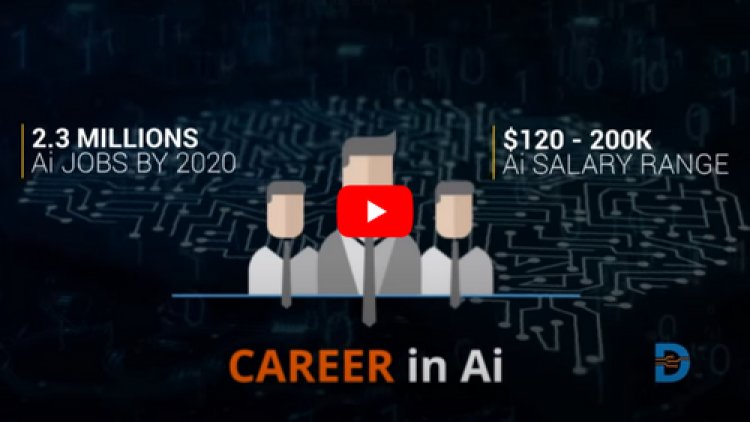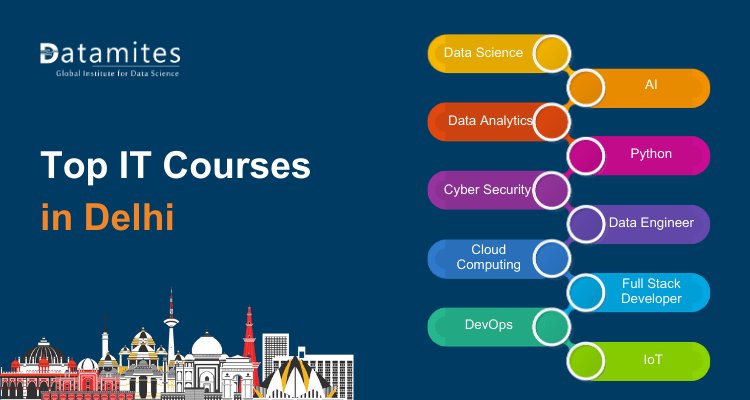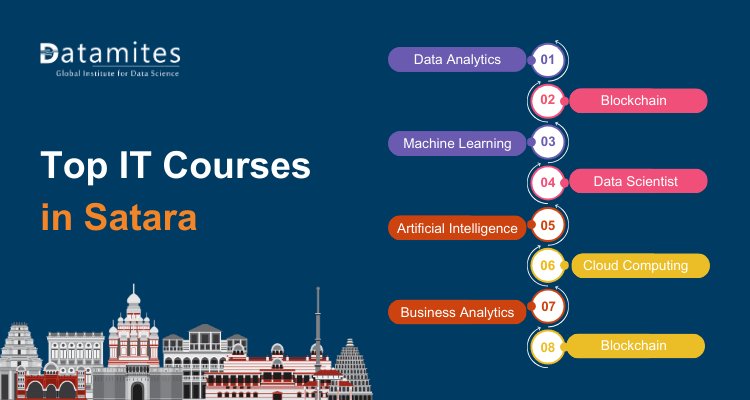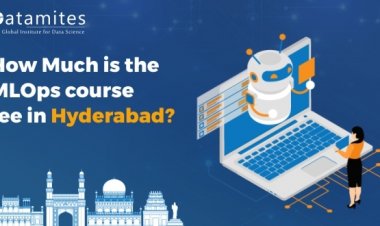Is Data Science and Artificial Intelligence in Demand in Pakistan?
Data Science and Artificial Intelligence are in high demand in Pakistan, with growing opportunities across various industries. Businesses are increasingly adopting AI-driven solutions, creating a strong need for skilled professionals in these fields.
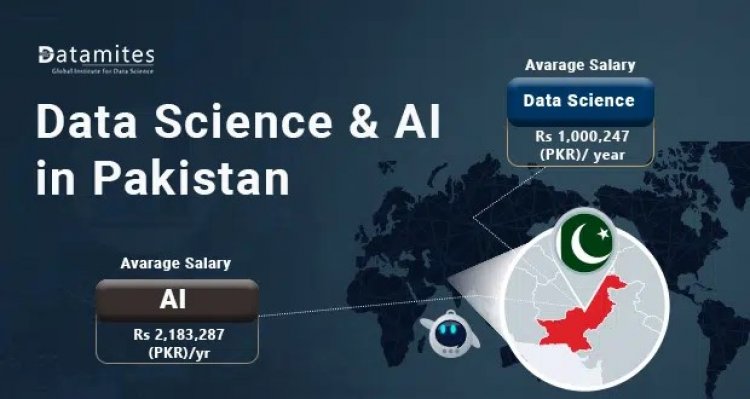
Pakistan’s economy is ranked 26th in the world in terms of purchasing power parity (PPP) and 40th in terms of nominal gross domestic product. Pakistan has a population of approximately 190 million people, making it the world’s sixth-largest country, with a nominal GDP per capita of $1,427, ranking 133rd globally. The key sectors of the Pakistani economy are agriculture, mining, industry, automotive, construction, defence, services, and transportation.
The IT/ITeS sector is one of Pakistan’s fastest-growing industries, accounting for around 1% of the country’s GDP ($3.5 billion USD). It has doubled in the last four years, and experts predict a further 100% increase to $7 billion in the next two to four years. Pakistan’s people and intellectual capital are huge, with over 60% of its 200 million population in the 15 to 29 age bracket. There are about 2000 IT companies and call centres in Pakistan, and the number is expanding every year.
Pakistan is counting on the new tech zones to provide jobs for the country’s youth, who make up about two-thirds of the population. According to the Oxford Internet Institute’s Online Labour Index, it already has the world’s third-largest gig economy after India and Bangladesh. During the coronavirus pandemic, an influx of foreign finance into companies ranging from fintech to e-commerce sparked demand for specific zones to serve these industries.
This fiscal year, Pakistan’s IT exports are predicted to increase from $2.1 billion to around $3.5 billion. Pakistan’s IT industry is booming, and the government is taking the right steps to help it grow even more, such as increasing the number of IT graduates from 25,000 to 50,000, establishing software technology parks in large and second-tier cities, improving IT companies’ access to capital, reducing tax disputes, enhancing IT companies’ financial structures, and listing them on the stock exchange.
How well in call is data science in Pakistan?
Data science is a broad term that encompasses a wide range of technological topics, including machine learning, artificial intelligence, and big data. As a result, you have a variety of educational options and specialisations to pick from in order to succeed in this field. In today’s world, data science is a popular area and a viable career path for Pakistan’s youthful and capable population.
What are the popular Data Science career paths?
Data science careers are not only profitable, but they’re also on the rise! Data scientists and other computer and information researchers are expected to have a 15% increase in job opportunities between 2019 and 2029, according to the US Bureau of Labor Statistics. This employment growth rate is significantly higher than the national average of 4% for all occupations. It’s an excellent moment to work as a data scientist.
Data scientist, data analyst, data engineer, machine learning engineer, research scientist, business intelligence developer, data architect, statistician, and big data engineer are some of the most common data science job roles.
What is the data scientist’s salary in Pakistan?
Data science in Pakistan is in high demand being a profitable career, and the shortage of expertise in this subject means that companies are always on the lookout for a data scientist they can trust to work for them. Many professionals, however, pursue an advanced degree to increase their earnings and gain a competitive advantage.
According to the Economic Research Institute, the average data scientist salary in Pakistan is PKR 2,177,144 per annum. The salaryexplorer.com reveals the average salary for a data scientist in Pakistan as 1,510,000 PKR a year. The data from payscale.com states the average annual data scientist salary in Pakistan is 1,000,247 PKR.
The average data scientist’s salary per month in Islamabad, Pakistan is 105,000 PKR. (Glassdoor.com) Per salaryexpert.com, the average salary for a data scientist in Islamabad is PKR 2,615,125 per annum. An entry-level data scientist with 1-3 years of experience gets an average salary of PKR 1,868,332 per annum. And a senior level data scientist with 8+ years of experience gets an average salary of PKR 3,298,646 a year.
Do you wish to seek a career in data science?
DataMites offers Data Science Course in Pakistan. We offer specialised data science courses for people of all levels, from complete novices to working professionals and managers. Data Science for Managers Course can be taken by managers at all levels of an organisation to strengthen their managerial abilities and integrate data science into their operations.
Refer the article – What are the Fees of Data Science Certification Courses in 2022?
Check out the video to know What is Data Science?
Data science does, in fact, control the workplace these days, but is it enough? What exactly is data science, and does it rely on other technologies for effective decision-making and execution? AI has arrived.
AI is concerned with the creation of intelligent systems, and it is currently a rapidly expanding field because of recent developments in machine learning using large-scale data, where machine learning allows a computer to execute difficult tasks without being explicitly programmed. Machine translation, computer vision, gameplay, and self-driving vehicles are all successful instances of this method.
What are the popular career paths in Artificial Intelligence?
Machine Learning and Artificial Intelligence (AI) have become commonplace, and unlike earlier waves of technical development, these advancements are touching almost all businesses. Now, the past must serve as a template for preparing for future job insecurity, particularly by investing in education, skill retraining, and community rejuvenation in rural areas, where the opportunity gap threatens to worsen job displacement in the face of AI-based innovation.
The good news is that Artificial Intelligence in Pakistan lays down a variety of career opportunities, allowing you to take on a variety of tasks and responsibilities depending on the role, your experience, and your interests.
The most in-demand AI job roles include big data engineer, AI engineer, business intelligence developer, ML engineer, data scientist, research scientist, and robotics scientist.
How much is the AI salary in Pakistan?
As per salaryexpert.com, an average AI specialist in Pakistan earns an average annual salary of 624,881 PKR. An entry-level artificial intelligence specialist with 1-3 years of experience makes an average salary of PKR 489,722. On the other side, a senior level artificial intelligence specialist with 8+ years of experience makes about 753,319 PKR a year. As per payscale.com, an ML Engineer’s salary in Pakistan is 943,330 PKR per annum.
The average annual AI Engineer’s salary in Islamabad, Pakistan is PKR 2,623,168. (Economic Research Institute) This proves how fruitful a career AI in Islamabad puts forth.
Are you up for an AI career?
Because artificial intelligence is becoming a more widely used and expanding form of technology, AI specialists are in greater demand than ever. The good news is that there are numerous job paths available in the AI area.
Attaining Artificial Intelligence Certification Training from DataMites is undoubtedly the best move you can make. DataMites is a global institute for data science and artificial intelligence training. A complete grip over AI is possible only after getting trained by experts with decades of experience in the industry. DataMites AI Engineer Certification Training is specially designed for professionals development in the field of data science and artificial intelligence.
DataMites Institute provides an industry-recognized Artificial Intelligence course, backed by global certifications. Featuring expert-led training and hands-on projects, it equips learners with advanced AI skills. Ranked among India’s Top 20 AI Institutes by Analytics India Magazine (AIM), DataMites guarantees high-quality education. Its extensive curriculum prepares professionals for thriving AI careers globally.
Conclusion
If you want to work in data science or artificial intelligence, now is the time to do it. This is your opportunity to pursue a rewarding career in these subjects, which appear to be in high demand, Data science and artificial intelligence certification courses can help you develop your abilities in the field and prepare for your profession.
Watch the video – Artificial Intelligence Course Introduction.

 Thushara C.P
Thushara C.P 
